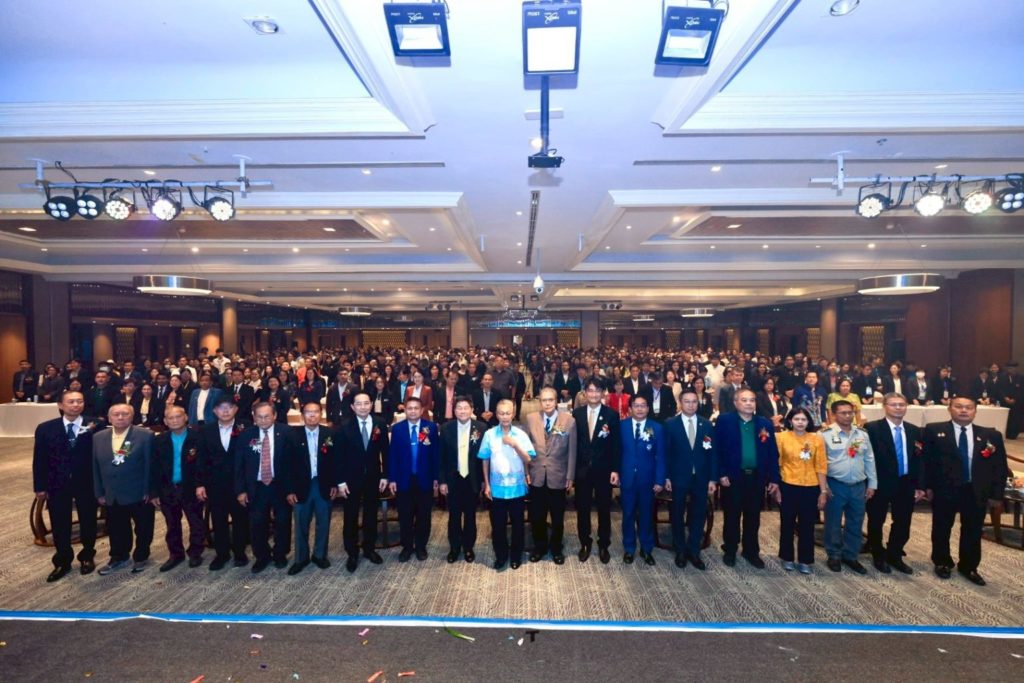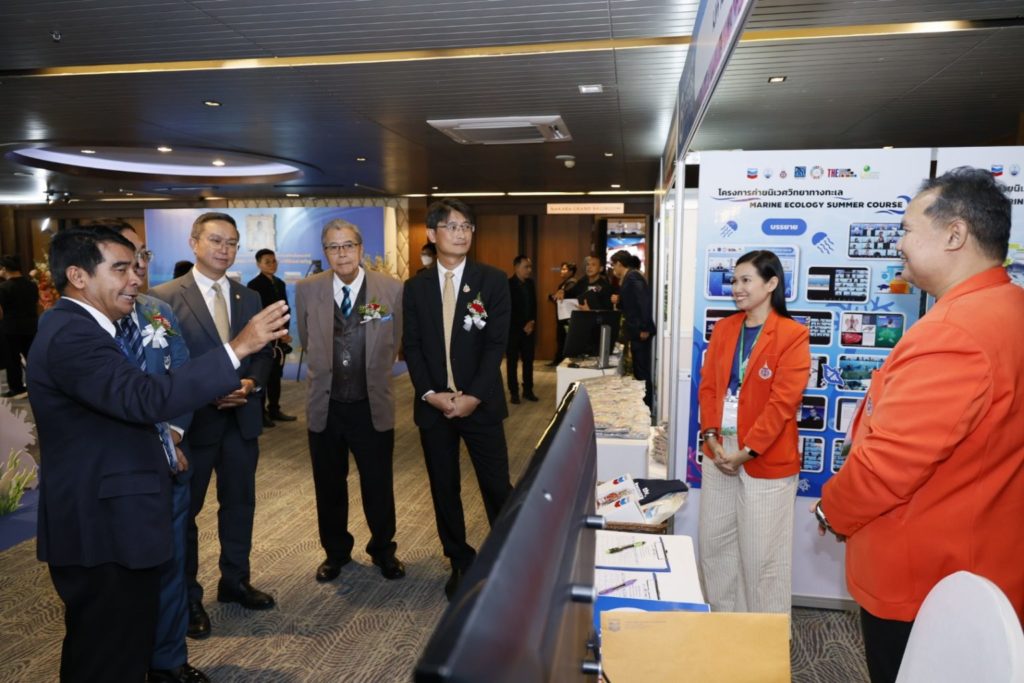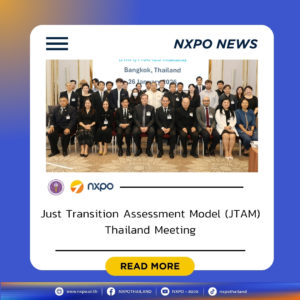On 25 June 2025, Dr. Surachai Sathitkunarat, President of NXPO, participated in the 8th Marine Science Conference, hosted by Rajamangala University of Technology Srivijaya in Trang Province. At the event, Dr. Surachai delivered a keynote address on “Thailand’s Higher Education, Science, Research and Innovation System and Policy.”
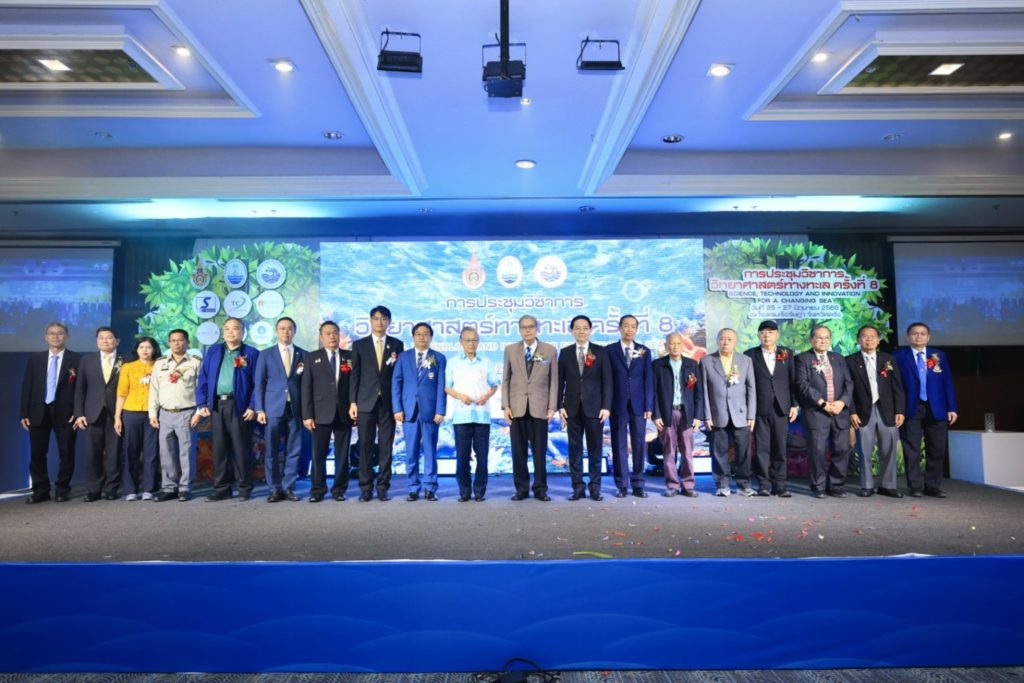
In his address, Dr. Surachai outlined the role of NXPO as Thailand’s national policy agency for higher education and science, research, and innovation. The agency also serves as the secretariat to the National Higher Education, Science, Research, and Innovation Policy Council, chaired by the Prime Minister.
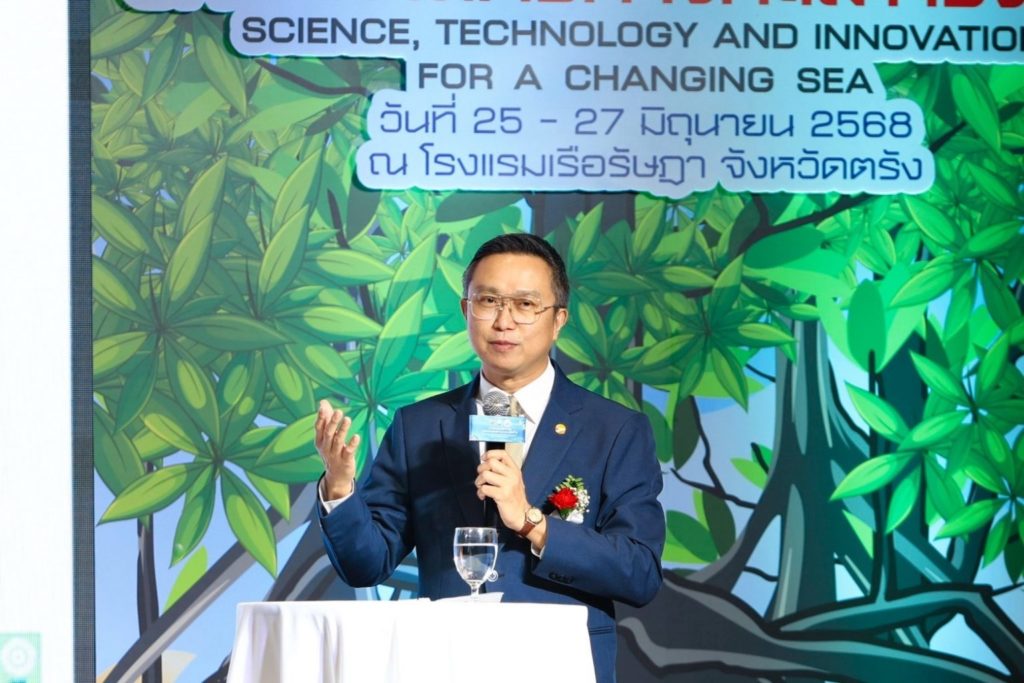
He provided an overview of Thailand’s higher education, science, research, and innovation system, which is structured around two primary funding streams: the Higher Education Development Fund and the Science, Research, and Innovation Promotion Fund. The latter is allocated to Program Management Units (PMUs) tasked with managing research and innovation funding in line with their mandates. These funding agencies are designed to support various research priorities and target groups in alignment with the country’s national strategy and development goals. Currently, six funding agencies operate under the Ministry of Higher Education, Science, Research, and Innovation (MHESI): 1) Program Management Unit for Competitiveness (PMUC); 2) Program Management Unit for Human Resources & Institutional Development, Research and Innovation (PMU-B); 3) Program Management Unit on Area Based Development (PMU A); 4) National Research Council of Thailand (NRCT); 5) Thailand Center of Excellence for Life Sciences (TCELS), and 6) National Innovation Agency (NIA). In addition, three funding agencies function outside the MHESI framework: the Agricultural Research Development Agency (ARDA), Health Systems Research Institute (HSRI), and National Vaccine Institute (NVI).
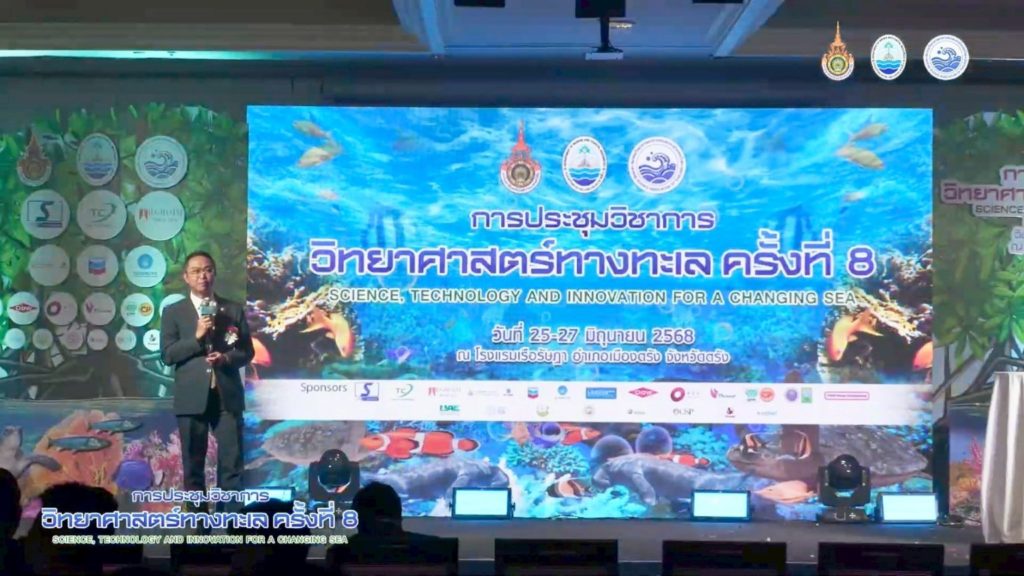
Dr. Surachai also presented the Higher Education, Science, Research, and Innovation Policy and Strategy 2023–2027, alongside the Higher Education Plan 2023–2027 and the Science, Research, and Innovation Plan 2023–2027. The Science, Research, and Innovation Plan comprises four key strategic areas:
- Enhancing the Thai economy through a value-based, creative economy to boost competitiveness and long-term self-reliance.
- Improving social and environmental outcomes to support sustainable development and adaptability in response to global changes.
- Advancing frontier research to create new opportunities and strengthen future national readiness.
- Building human capital and institutional capacity in science, research, and innovation as a foundation for sustainable economic and social development.
He emphasized that marine science research can contribute to these national strategies — particularly under Strategy 2 (Natural Resources and Environment Program) and Strategy 3 (Frontier Research Program).
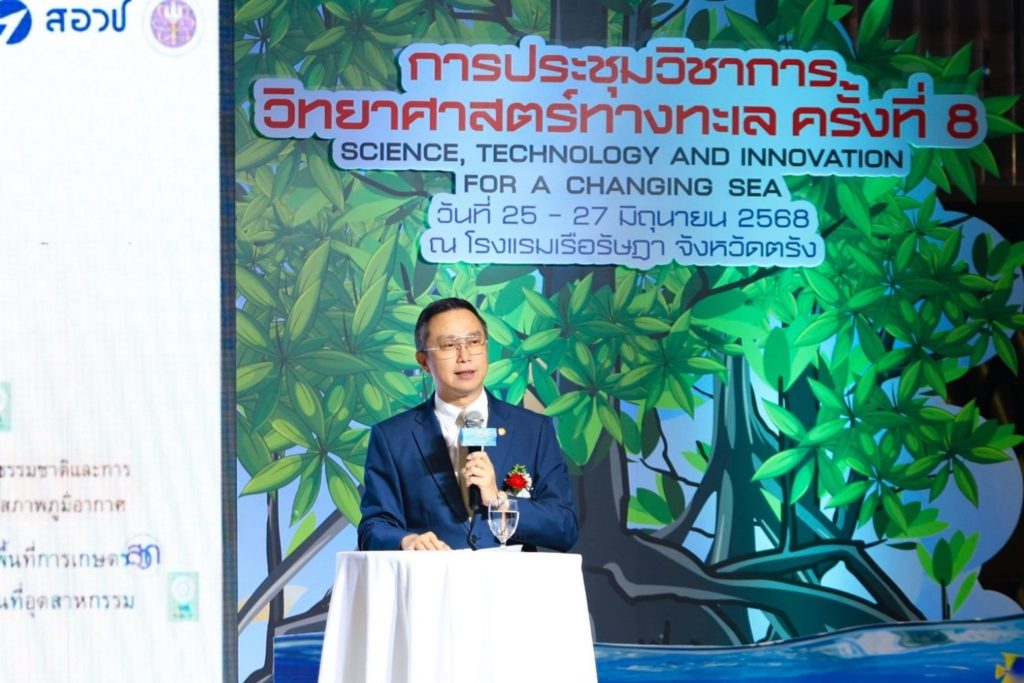
“We are currently reviewing the Science, Research, and Innovation Plan (2023–2027) in preparation for the next phase covering 2028–2031. The implementation of the plan will require monitoring and evaluation of performance across the national research and innovation system to ensure alignment with funding objectives,” said Dr. Surachai.
In addition, Dr. Surachai underscored the importance of strengthening Thailand’s innovation ecosystem to effectively support research and innovation activities. Key components include: 1) Financial mechanisms, such as well-designed research and innovation funding programs, 2) Incentives through tax measures, including a 200% tax deduction for R&D and targeted support for startups, 3) Human capital development tailored to meet national demands, 4) Regulatory reforms to remove legal barriers for innovation, including regulatory sandboxes and adjustments to public procurement rules, 5) Strengthening linkages among public research institutions, universities, the private sector, and civil society through intermediary bodies, and 6) Creating market mechanisms for innovation, including a national innovation catalog, government procurement programs, and private venture capitals.
